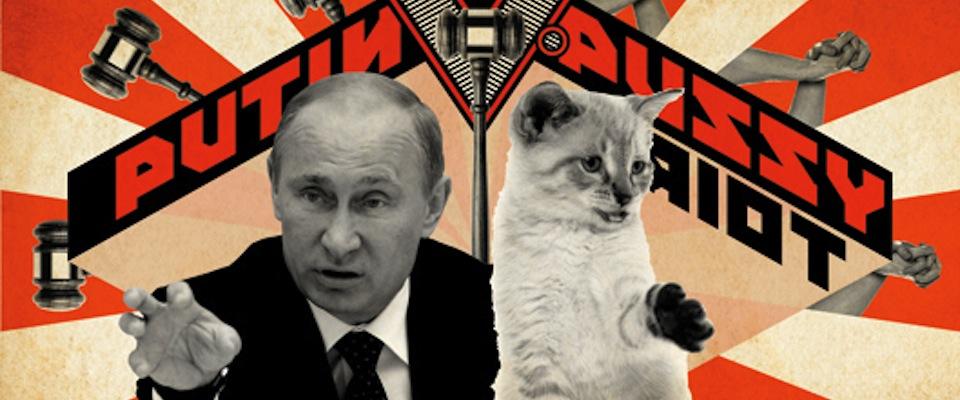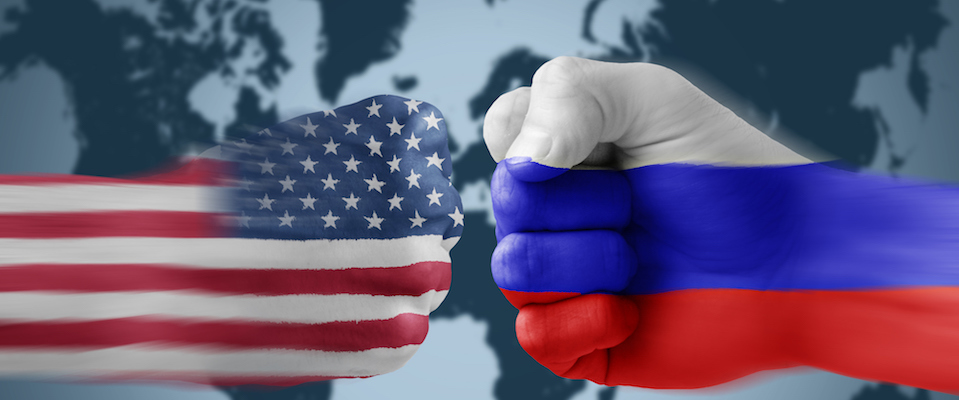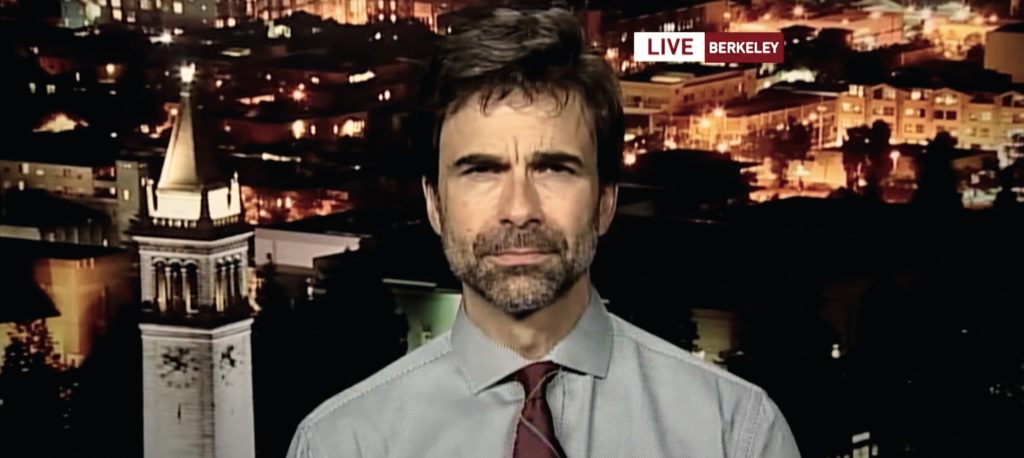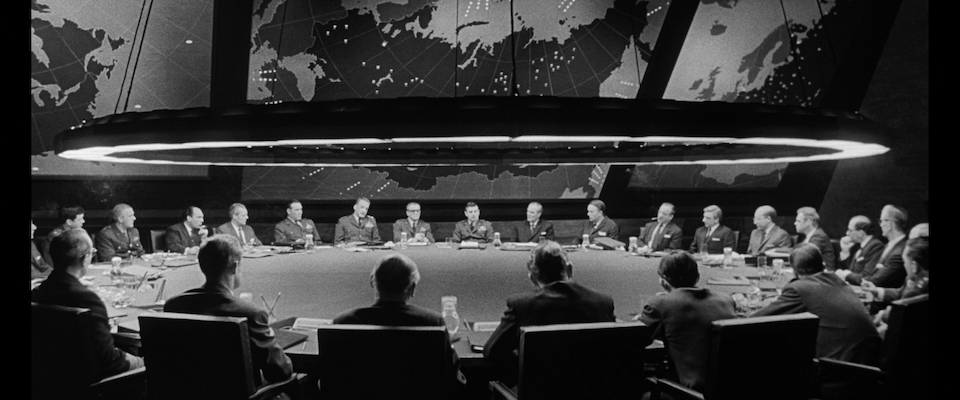The trial of a punk band highlights the social troubles of post-Soviet Russia.
I gathered with half a dozen local gay and lesbian activists on a mid-August evening to drink tea, munch on zakuski (snacks), and discuss the regime of creepy Russian president and former KGB thug Vladimir Putin. It was six years since I’d last visited Russia, and this trip was taking place during a troubling time—not just for queer folk, but for everyone eager to weaken Putin’s muscular embrace of power.
A few weeks before I arrived, the government had staged the astonishing, only-in-Russia-or-Kafka spectacle known as the Pussy Riot trial. In February, the punk grrl group with the fabulous name had scandalized the Kremlin and the Russian Orthodox Church with a brash piece of performance art—an anti-Putin riff in a major cathedral a few blocks from Red Square. Three of the participants were detained and charged with “anti-religious hooliganism.”
The bizarre courtroom proceedings, marked by otherworldly legal logic and theological fulminations about “spiritual injuries,” were mocked across the globe. The judge was scheduled to announce the verdict on a Friday while I was in Moscow. Interest in Pussy news was sweeping across the city. Every conversation included repeated enunciations of the P-word—although I was not at all convinced that most Russians grasped the non-feline meaning of the word.
The group’s three young women had already languished in jail hell for half a year, and protests against their treatment were just the latest manifestation of popular discontent with the regime. The preceding winter, massive demonstrations had erupted in Moscow after the government’s blatant theft of critical parliamentary elections. With tens of thousands of citizens willing to express public outrage during Moscow’s deep-freeze season, some hoped that Russia’s long-suffering populace might finally force a change in direction. But Putin’s victory in the March presidential elections doomed that wisp of hope; he regained the post he had vacated in 2008 after the constitutional maximum of two consecutive terms. In between, he served as prime minister under puppy-president Dmitri Medvedev. Under the agreement forged by the two men in advance of the 2012 elections, Medvedev stepped down to take over as prime minister, with clearly diminished authority.
My homo-ness had always been my entrée as a foreigner into the chaos otherwise known as Russia. I first visited Moscow in the summer of 1991 to attend an unprecedented gay and lesbian rights conference, a raucous and thrilling event that I covered as a reporter for the San Francisco Chronicle. I lived there on and off over the next few years, a tumultuous period during which the Soviet Union collapsed, corruption flourished, and Boris Yeltsin lurched through the mess in an alcoholic stupor. (My book about that period, Cracks in the Iron Closet: Travels in Gay and Lesbian Russia, was published in 1996.)
Some things had changed since my early Russian adventures, of course. In 1993, under pressure from the West, the Yeltsin government eliminated the notorious Article 121, the antisodomy law that throughout most of the Soviet years had threatened men who sought same-sex pleasure. (The law did not reference lesbians; apparently, the Soviet legal system had trouble fathoming that women could have sex when men were not present.) Even without Article 121, however, homophobia remained rampant, and legal protections against discrimination were—and still are—nonexistent.
I learned in those years that repressive governments hate sexual freedom as much as they hate freedom of thought and speech, so it certainly wasn’t a surprise to see the Kremlin take aim simultaneously at queers, punkers, and political enemies. I also learned that as much as Americans like to assume messianic poses and instruct people everywhere about the best way forward, Russians prefer to handle their troubles themselves, without such well-meaning guidance from outsiders. My best role now, as then, was simply to listen and observe and document.
As awful as today’s Putin-controlled Russia is, many Muscovites, like my acquaintance Asya, hate Putin but recognize that the country has experienced far greater stability under his leadership than it ever did under Yeltsin. Asya (a pseudonym, like other names used in this article, because people usually do not feel comfortable openly expressing their distaste for Putin) picked me up one afternoon and drove me to her flat for dinner. Her steady hand at the wheel amid the manic Moscow traffic impressed me; she’d only learned to drive a few years ago, in her late 40s, after saving enough for a down payment on a Hyundai. While navigating the streets, she told me she could understand why people supported the government, noting the material improvements in her own life. “I have a car, I have a steady job with decent pay, a new apartment,” she explained. “I can travel to the West when I want, without a problem. Life is better in many ways.”
I understood Asya’s point. I remembered the rampant inflation during the early 1990s, the lines for milk, for bread, for everything. I remembered the wild swings of the ruble-dollar exchange rate, and the spread of violent crime. In the Russia of 2012, I did not expect to get held up at knifepoint while at dinner—as happened to a group of us in 1992 when we gathered at a Georgian restaurant in Moscow for a birthday celebration. (We only learned after the incident that the restaurant, called “Come and Taste It,” had been the scene of a shoot-out the previous year. The food, at least, was terrific.)
But in other ways, life was clearly getting worse. Even before Putin’s reelection, a new antigay crackdown had begun. In February, the city of St. Petersburg passed a law banning what it called “homosexual propaganda.” Dozens of people had already been arrested and fined for violating the law.
The week I was in Russia, it was reported that some respectable St. Petersburg citizens were actually suing Madonna because of her pro-gay pronouncements during a concert there. According to a report in the St. Petersburg Metro newspaper—a free subway tabloid as trashy as the ones that have sprouted throughout the U.S.—the plaintiffs noted that “the suffering borne” by those who witnessed Madonna’s criminal activity “is incalculable, so we settled on a symbolic amount”—a symbolic amount, that is, of 333 million rubles, more than $10 million. (I suppose, for Madonna, $10 million could be considered a symbolic amount.)
Moscow had not yet adopted a similar law. However, former mayor Yuri Luzhkov once referred to gay gatherings as “satanic,” and the Moscow City Council had banned gay pride parades for the next 100 years, just to be safe, until 2112. In May, some Moscow activists were beaten and arrested when they tried to demonstrate in spite of the ban. The repression of gays and lesbians was not necessarily on the radar of most Russians. But I recognized the crackdown as a depressing reprise of government actions from earlier years, and believed it boded ill for the rights not just of queers but everyone who held nonapproved beliefs or behaved in nonapproved ways.
At our evening zakuski gathering, Andrei Obalensky, a young activist with the gay and lesbian political and social group Rainbow Association, told me something I didn’t know—that several other major cities, including Novosibirsk, Archangelsk, and Kostroma, had also passed anti-gay-propaganda laws. And he feared that the crackdown could get much worse. “They could pass a similar law in Moscow tomorrow, the day after tomorrow, any day,” said Andrei, who resembled Ashton Kutcher and spoke so fast I sometimes had trouble understanding his Russian. “People are unhappy with the politics of the government, so the government is searching for enemies to demonstrate that it’s doing something.”
I also spoke with Oleg, a blond, slender 27-year-old who said he’d recognized that he was gay when he was 19. “Before that, I’d had some experience but no particular feelings—but then I fell in love and understood,” he told me. For a long time, Oleg was too fearful to discuss his sexual orientation with anyone, but in the last couple of years he’s become increasingly involved with the Rainbow Association. He still lives with his mother in a small apartment, which makes it impossible for him to invite company over. “She knows, but we don’t discuss it because she’s very traditional; she’s very far from accepting it,” he said.
Oksana, a plump 51-year-old with lively blue eyes, short red hair, and a round, rosy face, moved to Moscow from Siberia a decade ago to live with her partner. She fears that she could be exposed at any time.
“They’ll punish everyone who thinks differently,” said Oksana, who tells most people that her partner, Irina, is her sister. “I don’t understand why they have that attitude toward me. I haven’t insulted or hurt anyone. But I know someone could say something about me to someone—and then anything could happen. In my own circle of friends, I’m comfortable, but outside I become wary—I can’t say, ‘my Irina.’ I have to say, ‘my sister.'”
One afternoon of this visit, I strolled around central Moscow and passed by the Cathedral of Christ the Saviour, where Pussy Riot had staged its performance. The church, a grandiose structure devoid of charm, has a fraught history. Originally built to commemorate Russia’s 1812 triumph over Napoleon, the church was demolished by Stalin, who planned to construct a massive socialist monument called the Palace of the Soviets on the same site. Stalin’s project fell victim to a shortage of funds, flooding from the adjacent Moscow River, and the advent of World War II. For years, the area remained an open pit in the middle of the city until, in the Khrushchev years, it was transformed into a vast outdoor swimming pool.
The pool, I knew from when I first lived in Moscow, was beloved by gays as a gathering place, and more than one man told me he’d met early sexual partners while showering and swimming. When the post-Soviet Yeltsin government of the early 1990s, in an Orwellian effort to obliterate the unpleasantness of the Communist past and yoke itself to the resurgent Russian Orthodox Church, decided to resurrect an exact replica of the original cathedral, my friends cursed. “All the gays will protest!” joked my friend Pavel at the time.
This trip, I got to observe the Putin regime’s impressive repressive machinery in action that Friday, as I waited outside the courthouse where the judge in the Pussy Riot case would pronounce her (read: the Kremlin’s) decision. Large crowds of Pussy Riot supporters packed the streets and sidewalks near the courthouse. From time to time, burly, baby-faced policemen hustled random protestors aboard dark vans and hauled them off somewhere. News that chess champ and opposition leader Garry Kasparov had been arrested and beaten zipped rapidly through the very wired crowd; so did updates from the courtroom, where the judge droned on, and on, and on. During the proceedings, the defendants awaited their fate behind bars, literally—locked in a cage inside the courtroom.
On the street, a small number of devout Russian Orthodox gathered in energetic defiance of the crowds. Their loud calls of “Christos voskrese!” (Christ is risen!) punctuated the buzz of the protestors—although I was confused (as were others) at the zealots’ decision to chant the traditional Orthodox Easter greeting. They crossed themselves and prayed for jail terms to punish the three women for the spiritual harm they’d inflicted upon the faithful, and indeed on Christendom itself. “God is judging us with this trial!” warned a youthful believer, who played guitar while leading his comrades in song.
I ran into Oleg and some of the activists I’d met the night before. They told me that members of Pussy Riot had demonstrated solidarity with gays and lesbians in previous actions and statements, and that the band’s advocacy of free expression meshed with the goals of the gay movement. “They supported us, so we’re supporting them,” said Oleg.
The day ended on a depressing chord: a two-year sentence for Pussy Riot. The women had been facing a possible seven-year term, so the judge might have felt that shipping them off to a penal colony for two years—minus the six months already served—represented an act of mercy. But most people awaiting the verdict were horrified at the outcome, and expected that similar treatment might befall others perceived as disrupting the social order—punks, gays, and other nonapproved types.
As Oleg told me in a voice tinged with resignation: “The next few years will be like the last few years. Until power changes, we’ll never have a civilized approach to this.”





















